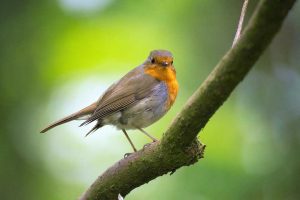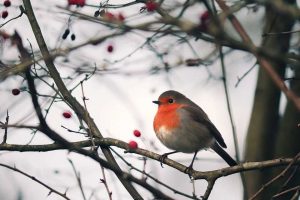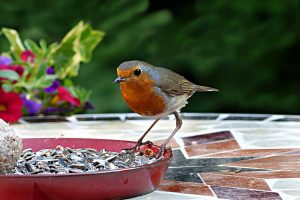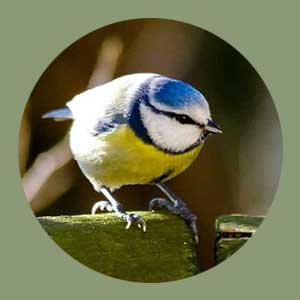Spotting a robin redbreast brings a smile to most people’s face, especially those who believe that they bring good luck.

Most of us could use all of the luck we can get, so, if you’re wondering how to attract robins to your garden, we should investigate further.
The primary concern of wild birds is finding a healthy food source. The robin loves nothing more than juicy insects and invertebrates; a designated patch in the garden rife with mini beasts entices them.
They tend to visit gardens where they feel safe. They like lots of shrubs and vegetation to shelter in or escape to when there is a threat.
During the winter, robins are on the lookout for fruit and berries to supplement their diet; they don’t mind if they eat from shrubs or scraps scattered on the ground.
Finally, a safe place to nest and a fresh water supply almost guarantees a visit from a robin.
Table of Contents
Build an insect zone
Robin’s favourite food is insects and worms, that is why they happily sit nearby when you’re turning any soil over, they know the earthworms won’t be far behind.
Create a wild area of your garden if possible; piles of logs, rotting leaves, and general compost are all areas rife with insects.
Robins will return to a well-stocked feeding spot time and time again.
Planting to attract robins
Although feeding the birds is a worthwhile and rewarding thing to do, there are certain shrubs that you can plant in your garden that reduce any effort required – a kind of robin self-service diner, if you will.
Ivy
Wild ivy not only looks attractive in a garden but has so many benefits for robins.
- It attracts insects during the autumn for robins (and wrens) to feast on
- The black berries that it forms in the middle of winter are a nutritious food.
- Caterpillars devour ivy leaves; robins adore caterpillars, especially during the breeding season.
- Ivy’s bushy growth creates lots of shelter for robins, whether to roost or to build nests.

Holly
The red berries of the holly bush ripen during the autumn, but it is usually late winter before robins eat them.
Only female holly bushes form berries, and only then if there is a male nearby.
Honeysuckle
A particular favourite of mine, due to its heady scent, particularly on summer evenings. It is this aroma that attracts the insects on which robins love to feed.
The berries that form in autumn are good supplementary food; there is plenty of space for tiny birds to shelter in honeysuckle.
Sunflowers
Not only are they fun to grow, but if left to fade, thousands of seeds form in the head.
During autumn they offer tasty, oil-rich nourishment, not only for robins but for all seed-eating birds.
Cotoneaster
This hardy shrub has an abundance of small, red berries in the autumn that are very popular with robins and other songbirds.
What to feed robins in the garden
Robins seldom use hanging feeders, but make an exception to rule for peanuts. I always use crushed ones to try and prevent a choking hazard.
They like mixed seed and sunflower hearts; sprinkled on the ground or a feeding table work best.

Mealworms are a particular favourite; live ones are the best. Remember to put them in a rounded dish so that they can’t escape. Dried mealworms also attract robins; I pre-soak mine to fatten them up a little.
Chopped apple, pears, raisins, and grapes are some of the fresh fruit that is good for them. In winter, suet blocks are a tasty way of introducing much-needed fat into their diet.
Robins are also partial to a little leftover grated mild cheese.
Offer the robins shelter.
All songbirds need to feel safe from danger; that might be from humans, predators, and the weather.
Robins build their nests in cavities, usually hidden behind shrubbery. Therefore gardens with heavy planting, lots of bushes and shrubs tend to attract more robins.
If you’re hoping to attract a couple of robins to raise a family, you should supply an open-fronted nesting box. Position it well out of reach of passing cats but with enough leafy cover for the birds to hide behind.
Give the birds a drink
Robins need fresh water to bathe in and drink from; a simple birdbath or dish is sufficient. Remember to change the water daily: dirty water carries harmful diseases.
During the winter, water is even harder to come by, so watch out for ice forming.
Final thoughts
Robins are present in the UK all year round; they fiercely protect their territories even in the colder months.
They are beautiful birds that cheerily sing through dark winter evenings. They are gregarious birds, now that you know how to attract robins to your garden, you should soon start to meet your robin, and if you’re lucky, he will bring his wife to meet you.
